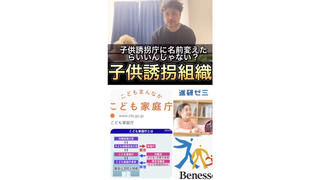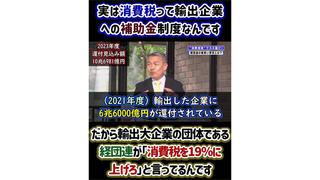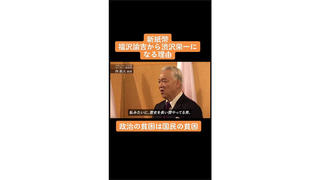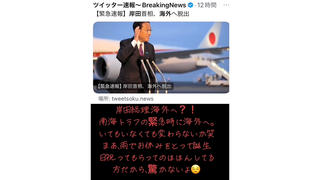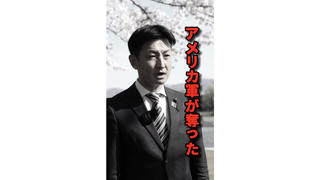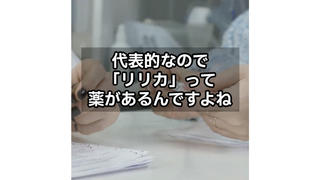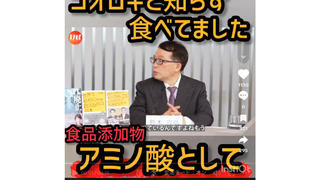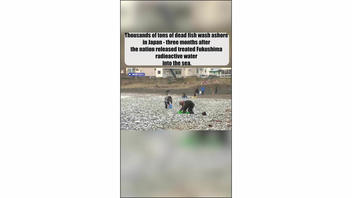
Was the stranding of dead fish on the shores of northern Japan caused by radioactive water? No, that's not true: The claim was published by the UK's Daily Mail on December 8, 2023, and gained traction on social media. However, Hokkaido officials refute the information as untrue and according to experts, the fish and waters are tested regularly. The fish likely ended up on the shore because they were chased by dolphins or other sardine predators.
The claim appeared in a TikTok video (archived here) where it was published on December 9, 2023. It opened:
Thousands of tons of dead fish wash ashore in Japan - three months after the nation released treated Fukushima radioactive water into the sea.
This is what the post looked like on TikTok at the time of writing:
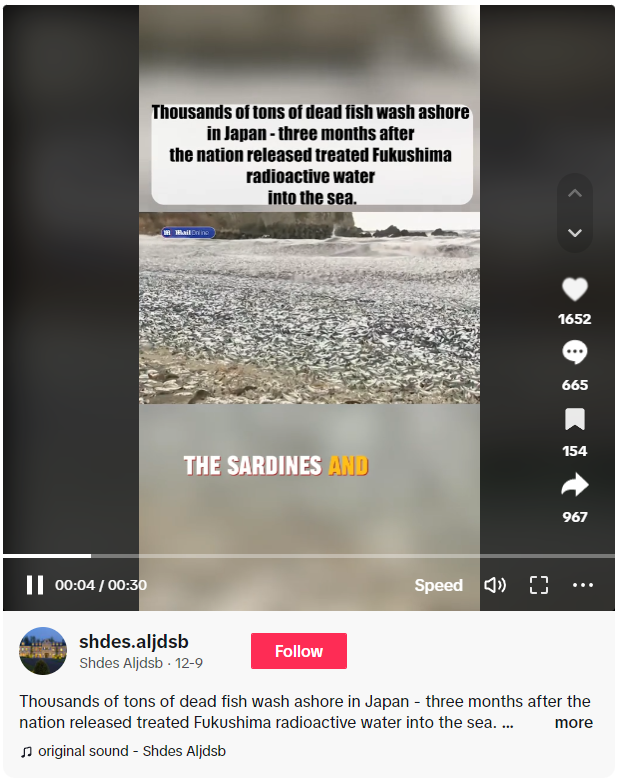
(Source: TikTok screenshot taken on Thu Dec 25 12:50:02 2023 UTC)
The post's text echoed the wording of the Daily Mail's headline: "Thousands of tons of dead fish wash ashore in Japan - three months after the nation released treated Fukushima radioactive water into the sea".
Following the Daily Mail's claim that the mass stranding of fish was attributed to radioactive water released from the Fukushima power plant, Hakodate City has released an official statement in response. The letter contains the following, refuting the allegations made by the British newspaper:
Regarding overseas reports on the stranding of sardines and other fish in Toi, Hakodate City Regarding the cause of the large number of dead sardines and mackerel that have washed ashore in Toi, Hakodate City, Hokkaido, some foreign media have reported a story that suggests a connection with ALPS (Advanced Liquid Processing System) treated water. The Hakodate Fisheries Research Institute of the Fisheries Research Department of the Hokkaido Research Organization has stated that "it is possible that the fish encountered low-temperature seawater, or were chased by predators like dolphins and washed up on the beach." The Fisheries Agency comments: "We have been monitoring the amount of tritium found in fish, and the Ministry of the Environment has been monitoring the seawater, but the results from both have been below the detection limit. Similar cases of fish washing ashore have also occurred in many places in the past." Since similar incidents have occurred in Hokkaido even before the release of ALPS-treated water, the prefecture has asked the national government to ensure that news reports are based on scientific evidence. The Ministry of Foreign Affairs, through the Embassy of Japan in the United Kingdom, has issued a notice to the relevant media: "Without any scientific evidence, it is inappropriate for the media to report as if there is a connection between the washing ashore of sardines and the release of ALPS treated water." The Hokkaido Government will strive to provide accurate information based on scientific evidence, while continuing to request the national government to do the same both domestically and internationally.
The Fisheries Agency regularly publishes the test results from their monitoring of radioactivity levels in water and fish. Similarly, the Ministry of Environment also shares its measurement results for monitoring the ALPS-treated water publically.
Lead Stories has previously debunked a similar claim.


